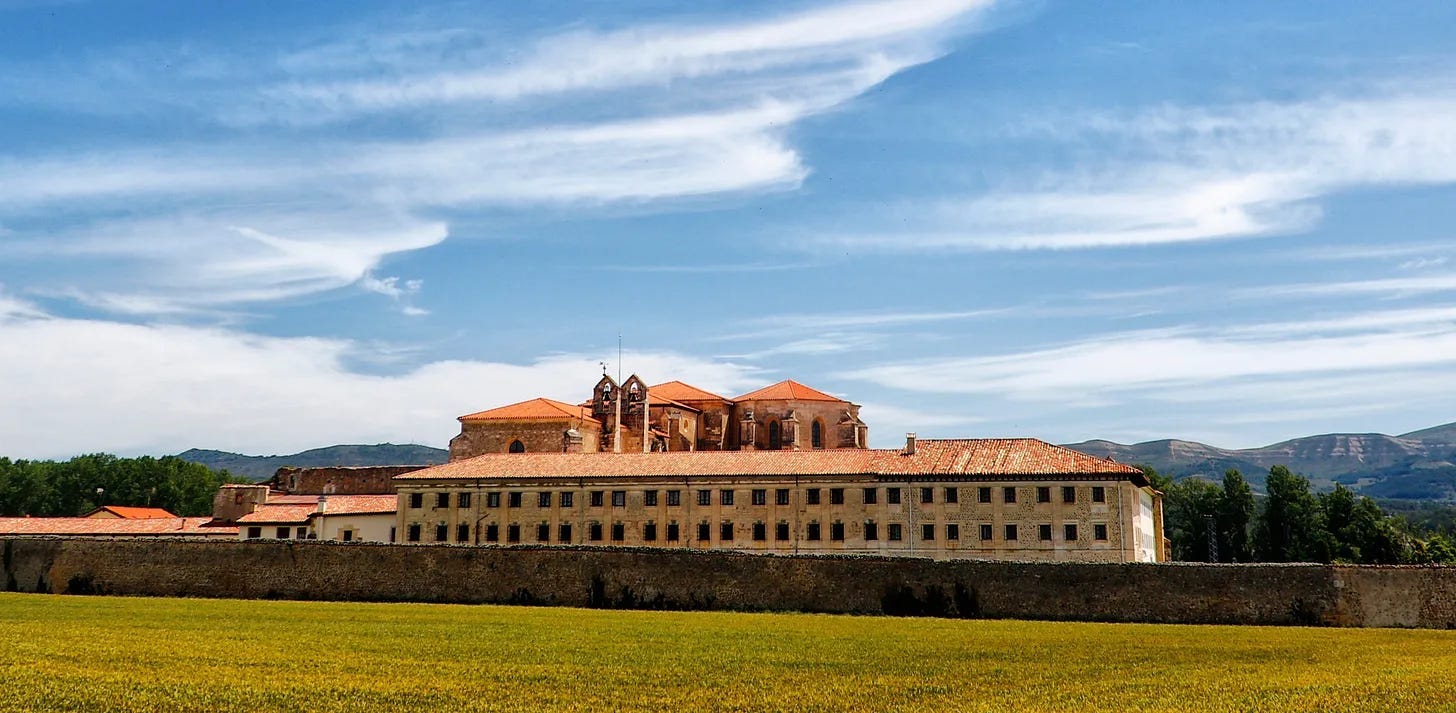Local Spanish media have revealed that the excommunicated Poor Clares of Belorado in Burgos racked up a debt of over 45,000 euros, on extravagant expenses including velvet and silk sheets, a fighting bull, and high-quality jamón ibérico - a speciality Spanish ham.
The Archdiocese of Burgos said it would honor the unpaid bills owed to the convent’s employees and vendors.
The revelation of the debts seems to justify the suspicion of those who believed that the convent’s split from the Church was due mostly to economic and not theological reasons.
The administrative commission appointed by the archdiocese to run the finances of the convent discovered 20 unpaid bills for more than 35,000 euros and 11 unpaid payrolls for 9,800 euros, including the gardener, the watchman, and other employees.
According to local reports, the sisters had been buying eccentric items such as high-quality jamón, laptops and cell phones, and even a fighting bull that had to be sold after it could not be tamed.
One vendor sent a bill for 6,900 euros, due in January, for items including silk sheets, feather down comforters, and velvet footrest covers. The vendor alleged that the last time he spoke with the sisters on the phone, one sister told him that “Saint Peter would repay [him]” and never answered the phone again.
The vendor told Diario de Burgos that he had to import the materials from Belgium because only one company sold all the products the sisters had requested. He said they had specified brands and models for the sheets, claiming that a cardinal would visit the convent.
One of the largest unpaid bills - for more than 18,000 euros - is from a French company, for an oven and raw materials to make the chocolates that the sisters sold to sustain themselves.
The sisters’ sweets were known across Spain and even served in Michelin-star restaurants.
In both the case of the luxury bedding and that of the chocolate supplies, the schismatic sisters reportedly followed a similar modus operandi. They first made a small order, which they paid on time, and then made a larger order that was never paid.
The now former nuns declared their separation from the Catholic Church on May 13, when they signed a 70-page “Catholic Manifesto” describing the post-Vatican II Catholic Church as illegitimate.
In a letter sent to friends and beneficiaries and posted on the convent's website, the community’s superior, Sister Isabel, said that “from the Throne of Peter we have been receiving contradiction, confusion and doublespeak, ambiguity, lack of clear doctrine which is all the more necessary in stormy times, to hold the rudder more firmly.”
She also mentioned a real estate dispute with Church authorities, complaining that the Vatican had blocked the sale of an empty monastery in the nearby town of Derio, owned by the community, which is believed to have triggered the break with the Church.
One of the nuns subsequently left the convent, while five others were not included in the penalty of excommunication because of their old age.
Initially after their break with the Church, the sisters declared themselves under the jurisdiction of Pablo de Rojas Sánchez-Franco, a self-proclaimed bishop who was excommunicated in 2019 but whom they described as a “legitimate bishop of the Holy Catholic Church.”
The community later kicked out Pablo Rojas from their convent, amid a legal fight between the excommunicated sisters and the Archdiocese of Burgos. However, the community has not made overtures toward reconciling with legitimate archdiocesan authorities.
Since the beginning of the conflict, the Poor Clares abbess has accused the Archdiocese of Burgos of trying to economically asphyxiate the community. She said they had not been able to pay the May and June payrolls of their employees.
However, the administrative commission claims that the abbess has failed to collaborate with the archdiocese by providing information on the convent’s economic activities.
The commission says that there are fewer than 6,000 euros in the community bank accounts which they have gained access to - which would cover less than 12% of the community’s debt.
The administrative commission said that it has started the process of paying the 9,600 euros due to the 11 employees of the community, and has already paid 3,000 euros in debt to various vendors, as well as 3,000 euros in service bills, and 18,000 euros in bank credits.
The archdiocese has not said where it will get the funds to pay the community’s outstanding bills.





